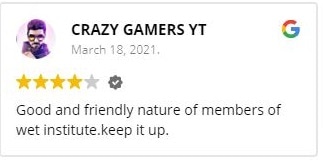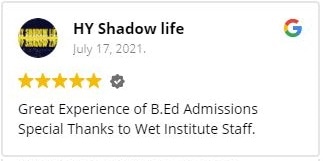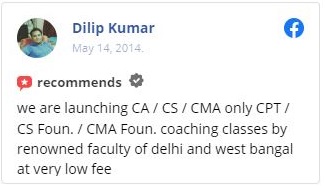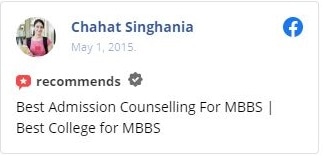B.Ed. in Special Education
Overview of B.Ed in Special Education
A Bachelor of Education (B.Ed.) in Special Education is designed to prepare educators to work with children and adults with diverse learning needs. This program focuses on developing the skills and knowledge necessary to support individuals with disabilities and learning challenges.
Key Components of the Program
Teaching Strategies:
- Instructional Methods: Evidence-based teaching strategies tailored for diverse learners, including differentiated instruction and universal design for learning (UDL).
- Behavior Management: Techniques for managing classroom behavior and fostering positive learning environments.
Curriculum Development:
- Adapted Curriculum: Designing and adapting curriculum materials to meet the needs of students with disabilities.
- Assistive Technology: Utilizing technology to enhance learning and accessibility.
Field Experience:
- Practicum/Internship: Hands-on experience in classrooms, working directly with students with special needs under the guidance of experienced educators.
- Practicum/Internship: Hands-on experience in classrooms, working directly with students with special needs under the guidance of experienced educators.
Career Opportunities
Graduates with a B.Ed. in Special Education can pursue various roles, including:
- Special Education Teacher: Working in public or private schools, providing individualized instruction to students with special needs.
- Inclusion Specialist: Supporting the inclusion of students with disabilities in general education classrooms.
- Educational Consultant: Advising schools and organizations on best practices in special education.
- Behavioral Therapist: Providing support and intervention for students with behavioral challenges.
- Advocate: Working with organizations to promote the rights and needs of individuals with disabilities.
Eligibility Criteria for Admission to a B.Ed in Special Education (2026-2027)
The eligibility criteria for admission to a Bachelor of Education (B.Ed.) in Special Education for the 2025-2026 academic year can vary by institution and country. However, here are some common eligibility requirements you might encounter:
General Eligibility Criteria
Educational Qualifications:
- Undergraduate Degree: Typically, a bachelor’s degree in any discipline from a recognized university is required. Some programs may prefer degrees in education or related fields.
- Minimum Percentage: Many institutions require a minimum percentage (usually around 50%–55%) in the undergraduate degree.
Specialization Requirements:
- Some programs may have specific requirements for coursework related to psychology, education, or social sciences.
- Some programs may have specific requirements for coursework related to psychology, education, or social sciences.
Entrance Examinations:
- Some universities may require candidates to pass an entrance exam specific to education or special education.
- Some universities may require candidates to pass an entrance exam specific to education or special education.
Work Experience:
- While not always mandatory, some programs may prefer or require candidates to have experience working with children or individuals with disabilities.
- While not always mandatory, some programs may prefer or require candidates to have experience working with children or individuals with disabilities.
English Proficiency:
- For non-native speakers, proof of English proficiency (e.g., TOEFL, IELTS) may be required.
- For non-native speakers, proof of English proficiency (e.g., TOEFL, IELTS) may be required.
Additional Requirements
- Personal Statement: A statement of purpose explaining your interest in special education and career goals.
- Letters of Recommendation: Some institutions may ask for letters from academic or professional references.
- Interview: An interview may be part of the selection process for some programs.
Admission Process for a B.Ed in Special Education for the 2025-2026
The admission process for a Bachelor of Education (B.Ed) in Special Education for the 2025-2026 academic year generally involves several key steps. While specific requirements can vary by institution, here’s a general outline of the process you can expect:
Admission Process Steps
Research Programs:
- Identify institutions offering B.Ed in Special Education and review their course offerings, faculty, and accreditation status.
- Identify institutions offering B.Ed in Special Education and review their course offerings, faculty, and accreditation status.
Check Eligibility:
- Ensure you meet the eligibility criteria (educational background, minimum percentage, etc.) specified by the programs you are interested in.
- Ensure you meet the eligibility criteria (educational background, minimum percentage, etc.) specified by the programs you are interested in.
Application Form:
- Complete the online or offline application form for each institution. This may involve creating an account on the university’s website.
- Complete the online or offline application form for each institution. This may involve creating an account on the university’s website.
Documentation:
- Prepare and submit required documents, which may include:
- Academic transcripts (undergraduate degree)
- Proof of English proficiency (if applicable)
- Identity proof (e.g., passport, national ID)
- Passport-sized photographs
- Letters of recommendation (if required)
- Personal statement or statement of purpose detailing your interest in special education.
- Prepare and submit required documents, which may include:
Entrance Examination (if applicable):
- If required, register for and take any entrance exams or qualifying tests specific to the program.
- If required, register for and take any entrance exams or qualifying tests specific to the program.
Interview (if applicable):
- Some programs may require an interview as part of the selection process. This could be conducted in person or virtually.
- Some programs may require an interview as part of the selection process. This could be conducted in person or virtually.
Application Fee:
- Pay any required application fees, as specified by the institution.
- Pay any required application fees, as specified by the institution.
Admission Decision:
- After submitting your application, wait for the institution to process your application and notify you of the admission decision, which may take several weeks.
B.Ed Special Education Curriculum
Core Curriculum Components
Foundational Courses:
- Introduction to Special Education: Overview of special education history, legislation, and policies.
- Psychology of Learning: Understanding cognitive development and learning theories relevant to special education.
- Sociology of Education: Exploring the social context of education and its impact on learners with disabilities.
Curriculum Development:
- Adapted Curriculum: Designing and modifying curriculum materials for students with varying abilities.
- Assistive Technology: Utilizing technology to enhance learning and accessibility for students with disabilities.
Teaching Methods:
- Specialized Teaching Techniques: Approaches specific to various disabilities, such as autism spectrum disorder, learning disabilities, and emotional disturbances.
- Inclusive Education Practices: Strategies for integrating students with disabilities into general education classrooms.
Practical Components
- Teaching Practicum/Internship: Hands-on experience in classroom settings, allowing students to apply their knowledge by working directly with students who have special needs. This may involve:
- Observing experienced special education teachers.
- Designing and delivering lessons.
- Collaborating with other educators and specialists.
Electives and Specializations
Many programs offer elective courses or specializations that may include:
- Early Childhood Special Education: Focus on teaching young children with disabilities.
- Behavioral Disorders: Strategies for supporting students with behavioral and emotional challenges.
Capstone Project
- Some programs may require a capstone project or thesis that allows students to conduct research or explore a specific issue in special education.
Locomotive and multiple disabilities |
Contemporary India and education |
Neurodevelopment disabilities |
Human growth and development |
Sensory disabilities |
Designing, adaptation and evaluation of Curriculum |
Inclusive education |
School subjects pedagogy 2 (English, Hindi) |
Teaching, learning and assessment |
School subjects pedagogy (Mathematics, Science, Social science) |
Visual and performing arts |
Reading and Reflection on test |
Disabilities and Technology |
Teaching Strategies and methods |
Family issues and psychosocial |
Inclusive school creation |
Practical |
Statistics and research |
Skill-based optional course |
Skill-based optional course through |
Scope of a Bachelor of Education (B.Ed) in Special Education
1. Diverse Career Opportunities
- Special Education Teacher: Work in public and private schools, teaching students with disabilities.
- Inclusion Specialist: Support the inclusion of students with special needs in mainstream classrooms.
- Educational Consultant: Advise schools and organizations on best practices in special education and inclusive teaching.
2. Advancement in Educational Roles
- Curriculum Developer: Design and adapt curriculum materials for students with diverse learning needs.
- Behavioral Therapist: Work with students with behavioral challenges, providing support and intervention.
- Administrator or Coordinator: Take on leadership roles in special education programs within schools or districts.
3. Opportunities for Further Education
- Graduates may choose to pursue advanced degrees (M.Ed, Ph.D.) in special education or related fields, opening doors to research, teaching at the university level, or higher administrative positions.
4. International Opportunities
- Many countries are seeking qualified special education professionals, providing opportunities to teach abroad or work with international organizations focused on disability rights and education.
7. Impact on Policy and Advocacy
- Graduates can engage in advocacy work, promoting policies that support individuals with disabilities and working towards systemic changes in educational practices and legislation.






























